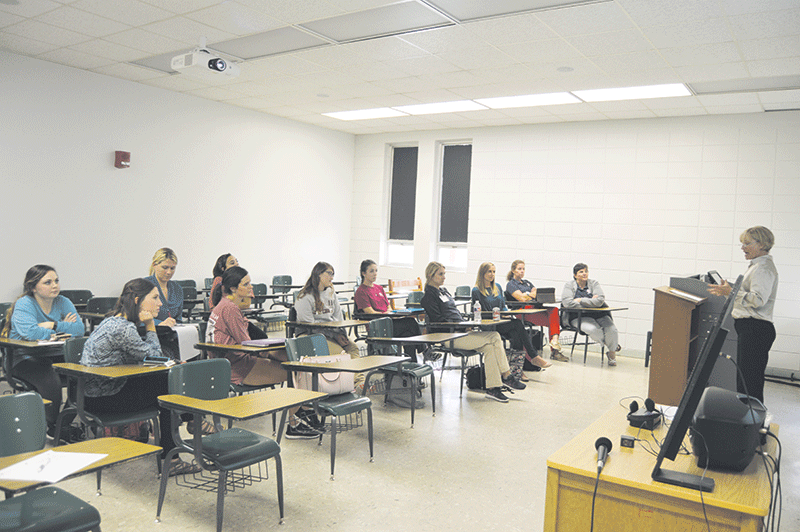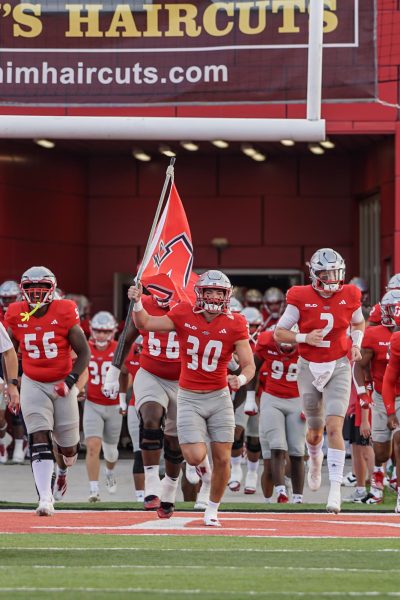Communicative disorders changing, athletic training phasing out
Photo by: Bettie Tabor
Students listen intently on Tuesday, Oct 20 during a presentation discussing the dropping of athletic training and communicative dissorders majors.
The Courses and Curricula Committee voted to delete the athletic training and communicative disorders degree programs and to create a new concentration for communicative disorders, under the Allied Health Sciences.
At the meeting on Tuesday, Oct. 20, Faculty Senate President Brigett Scott explained that the budget committee proposed these actions due to low enrollment.
“The budget committee actually recommended that the COMD faculty investigate the development of a master’s degree program on campus, but unfortunately the Doctoral-prepared faculty member who was spear heading that endeavor left before the semester started,” Scott said. “A Master’s program could still be a possibility for the future.”
Allied Health Communicative Disorders, the new concentration, will not include the clinical hours required under the current degree program.
Morgan Mitchell, a communicative disorders senior from Morgan City, said that by cutting the clinical classes starting in May, Nicholls graduates would seem “less impressive to grad schools.”
“Without our clinical program, we’re more average now,” Mitchell said. “We’re just like all the other undergraduate programs. We don’t have that significance about us. After 45 years of being established in this program, it’s fading. It was for not only the students, but the community.”
Megan Monier, a communicative disorders senior from Thibodaux, said even professors at the graduate level had taken notice of how well prepared Nicholls students were. On their recent trip, an Allied Health professor said, “These are my Nicholls students. Y’all are my best clinicians.”
Maddie Toups, a communicative disorders junior, said students would not be the only ones suffering from the cut.
“The community won’t have those services anymore with speech,” Toups said. “I know my brother came to speech therapy here. Now that service isn’t going to be available and some people can’t afford it. It’s hard to get a lot of insurance companies to cover speech therapy.”
The accrediting body for athletic training recently announced that in 2022, in order to become a certified athletic trainer, students will have to graduate from an accredited Master’s degree program in athletic training. Nicholls’ 4-year athletic training program will be up for re-accreditation in 2018.
The Budget Committee recommended phasing out the athletic training program, rather than spending $12,000 for re-accreditation that would only be used for a few more years. The last class with athletic training degrees will graduate in May 2018.
“Athletic training majors are being encouraged to go to the pre-professional degree, which is where they can get all of their prerequisites (for graduate school),” Scott said. “We didn’t need to create another concentration, we already had one.”
“The athletic training students have kind of a window between us ending and the master’s degree starting, don’t quite match up perfectly,” Scott said. “There are no master’s degree programs in athletic training in the state of Louisiana right now. LSU and UL are developing them.”
Travis Rousselle, a sophomore athletic training major from Marrero, said he understands why the University decided to cut the program and he will not be affected, but knows many freshmen that will be affected.
“My class will be the last class to graduate from the program, so we hope to end with a bang and leave a good legacy behind,” Rousselle said.







